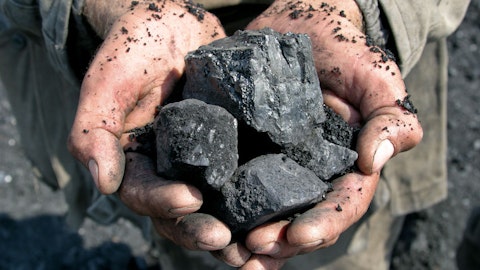3. Shell plc (NYSE:SHEL)
Number of Hedge Fund Holders: 39
Shell plc (NYSE:SHEL) operates as an energy and petrochemical company worldwide. It is one of the premier hydrogen stocks to invest in. Shell plc (NYSE:SHEL) recently made its first power sector acquisition in Africa with the purchase of Nigerian renewable energy provider Daystar Power for an undisclosed sum, per news publication Financial Times. The move is part of a larger plan as the firm expands its global renewables portfolio.
On October 07, Cowen analyst Jason Gabelman maintained an Outperform rating on Shell plc (NYSE:SHEL) stock with a $60 price target, stressing that company targets were unchanged despite inclusion of growth previously accounted for in another segment while capex was higher than expected.
Among the hedge funds being tracked by Insider Monkey, California-based investment firm Fisher Asset Management is a leading shareholder in Shell plc (NYSE:SHEL), with 20 million shares worth more than $1 billion.
In its Q1 2022 investor letter, Harding Loevner, an asset management firm, highlighted a few stocks and Shell plc (NYSE:SHEL) was one of them. Here is what the fund said:
“While risks of unforeseen consequences arising from the Ukraine conflict are high, on this front we are cautiously optimistic that China will work hard to maintain its neutrality in a credible way, as it is a huge beneficiary of trade with the rest of the world, especially the rich developed nations. We think it likely that China, along with India, will continue to buy oil and gas from Russia (just as Europe, at least for now, plans to keep its gas pipelines open), and do not expect that fact to alter China’s trade relations with the West much. Nevertheless, we must contemplate that our optimism is misplaced on the importance of membership in the global network of exchange. If our central and optimistic case—admittedly an educated guess—is wrong, then we’d need to greatly modify our views of which companies in our opportunity set will face new barriers to profitable growth, and which might stand to benefit, relatively, from a further receding of globalization. (Global trade, after all, has never matched the peak share of GDP it reached in 2008, before the Global Financial Crisis.) We’d expect such a world to be less efficient, as the cold logic of comparative advantage is demoted as a determinant of which goods or services are produced and where. That would lead to a less prosperous world, since exploiting comparative advantage is a cornerstone of wealth creation. If regional blocs began to raise limits on the movement of capital as well as goods, we’d need to parse which of our multi-national companies were at risk of declining sales from increasingly hostile, siloed countries. Shell plc (NYSE:SHEL) has found its Siberian oil and gas joint venture assets stranded by the combination of sanctions and the public opprobrium of Russia’s actions.”





